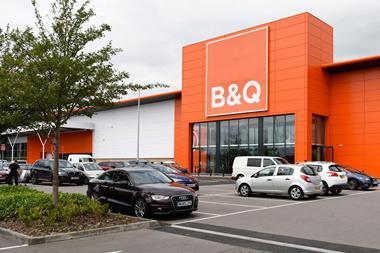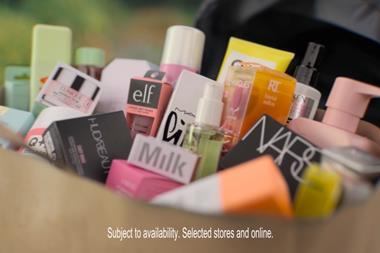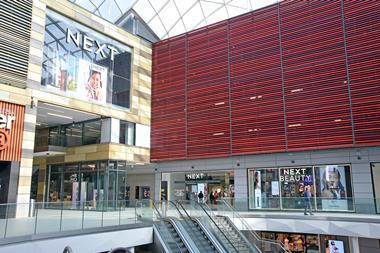PROMOTIONAL RESEARCH
Few technological advancements in recent years have generated more news coverage than the advent of generative AI. For all the science-fiction headlines, though, several big retail names are already leading the way when it comes to adoption
While functional artificial intelligence (AI) has been used by retailers in the UK for several years, much of that used before 2024 was predictive AI – effectively machine learning based on existing data points.
2024 has marked what many see as a turning point in the development of generative AI (Gen-AI), which many consider to be ‘truer’ AI – able to create and translate data into new and different formats.
Retail Week looks at how four of the UK’s biggest retail names are implementing this cutting-edge technology in their day-to-day operations.
Boots
- AI is playing a part in its warehouse transformation plans
- Boots is using AI to support its online search functionalities to improve CX and personalise the shopper journey
- Gen-AI is also a focus to save time and resources
“I honestly think AI is going to be completely transformative,” says Paula Bobbett, chief digital officer at Boots.
“When you think about the advent of the internet and how that has changed our lives, AI is the next step along. There are so many things I can see where it makes life so much easier for the people who work in the teams,” she says, adding that AI is commonly removing manual tasks from colleagues “to allow them to do more value-added tasks”.
A prime example is in Boots’ warehousing, which Bobbett has said is one of the most advanced systems in Europe.
Small robots buzz around the Burton-on-Trent, Staffordshire, warehouse, able to avoid humans walking in their path and removing the need for pickers to do so much carrying.
As a result of the use of the 150 robots – called ‘co-bots’, although some have human names – accidents at the warehouse have been significantly reduced.
Boots’ online search function now uses adaptive AI to personalise the shopping experience. If a customer searches for lipstick, the engine uses up-to-date data to make sure the results are as relevant as possible, that the products are in stock and to recommend shades popular with other customers and therefore more likely to be on trend.
In forecasting, up-to-date information about the weather feeds into predicted sales. Data for what then sells well is also constantly updated via machine learning.
Over in Gen-AI, the retailer is trialling a ChatGPT-based chatbot that can answer customers’ conversational questions.
It might, for example, respond to a question like “How do I develop a skincare routine?” by recommending appropriate products.
In marketing, the company is using AI to optimise ad placements. It even used virtual production and AI to create some of the images for its 2023 Christmas advertising campaign.
B&Q
- Personalisation is a central focus for B&Q’s AI strategy
- Retail media and pricing are among other areas being targeted with AI solutions
- Improving staff productivity is next on the agenda with new AI trials underway
For B&Q, AI and machine learning are playing an “important role” in its tech strategy, according to Lynn Beattie, the retailer’s tech and product director.
Beattie says that AI is making it easier for its customers to shop through better – and more focused – targeting.
With 1.2 million products now available via the B&Q marketplace, this is a key advancement to helping consumers find the products they need.
“By using AI, we can connect data across multichannel touchpoints throughout a customer’s journey and respond to their behaviours with personalised communications and offers in real time, such as through direct marketing, emails and coupons at the till,” she says.
“We retain and engage customers, driving loyalty and more sales through more frequent visits and increased spend.”
Elsewhere, AI-powered pricing is a focus for the broader Kingfisher parent company and Beattie notes that AI has been helping “effectively manage markdown clearance pricing” and “forecast demand to inform supply management and manage availability”.
This has freed up staff to have more time to interpret and act on data as opposed to working on administrative tasks.
Retail media is another area of focus, with AI being used to develop B&Q’s offers so that its adverts are displayed and personalised to the customer.
The group has also developed Athena, an in-house AI orchestration framework, that helps it “integrate multiple AI technologies, allowing [the business] to quickly adopt new AI tools as they are developed”.
This includes a Kingfisher Group-developed recommendation engine, implemented in 2023, which Beattie reveals has driven a higher click-through and add-to-basket rate, as well as much faster response times.
For B&Q, AI is by no means a fad.
“We’ll keep learning through trialling AI so that we can enhance the processes we have and implement new ones,” says Beattie.
B&Q is part of an Early Access Program with Microsoft, enabling the retailer to trial different ways of working to understand where the business can best leverage Gen-AI for productivity.
John Lewis
- Improving ecommerce UX is a priority
- John Lewis is seeking to reap rewards from £100m Google AI deal
- AI-driven warehouse robots mark the latest AI investment
John Lewis has been through some challenging times recently, but its full-year results to January 27, 2024, tell the story of a retailer returning to profitability.
As part of its turnaround plan, headed by new executive director Peter Ruis alongside chief executive Nish Kankiwala, the business is prioritising investment into its technology stack, including AI.
The retailer plans to spend £542m on modernising technology, refreshing shops and simplifying the way it works – an investment increase of 70% over the previous year.
That would follow a successful trend for John Lewis, which in July 2023 announced it was partnering with AI-powered imaging company Zyler to allow customers to virtually try on its range of UK rental outfits.
Three months later, its rental arm had seen a 30% jump in sales. The platform asks users to upload their clothing size and a photograph, and then uses AI to create and virtually clothe their avatar.
The results exceeded expectations. “It has been so exciting to offer styling support in a digital environment using the Zyler technology, and the impressive results we’ve seen from the first few months shows it’s resonating with our customers too,” says Danielle Gagola, innovation lead at John Lewis.
In March 2024, John Lewis made a further significant move into robotics, signing a deal to use Locus Robotics robots at its Milton Keynes warehouse.
Much like Boots’s co-bots, Locus describes these as “AI-driven, intelligent autonomous mobile robots that operate collaboratively with human partners to dramatically improve product movement and productivity”.
The robots remove the need for workers to push heavy trolleys or lift boxes.
Next
- Boss Lord Wolfson is in the process of modernising the legacy system and incorporating new solutions
- Next has doubled its technology spend, which includes investment in AI
- AI is helping the retailer to forecast trends and gather sales data
Over the past five years, Next has more than doubled its spend on technology from £97m in 2019/20 to £203m in 2023/24 and has almost doubled the number of tech professionals it employs, scaling up from 1,000 to 1,900.
In its March 2024 results, the retailer said that it now employs more people developing technology than in its product teams.
The retail giant is using AI in forecasting, gathering sales data, and using machine learning to identify what it needs to restock, when and where.
Speaking in March 2023, Next chief executive Simon Wolfson was bullish on the broad uses of both adaptive and Gen-AI, with the latter being used to write to customers.
“We write thousands of emails to our consumers answering queries,” he said. “AI is the perfect tool for improving the content of those letters to make sure that what we’re writing is good, clear, understandable English and pointing the operator in the direction of the right solution.”
Next has expanded its technology-based offering hugely since the pandemic in 2020, striking deals with other retailers whose goods it then sells through its online platform, as well as buying other brands.
These acquisitions and clients include Cath Kidson, JoJo Maman Bébé and Reiss, all of which are brought together under Next’s Total Platform, where customers can access and order these third-party brands in a single place while the brands benefit from Next’s warehousing and logistics capabilities.
The company forecasts that Total Platform will add £77m to the group’s profits in the year ahead.
The likelihood is that some of the investment the group is pouring into it will go on AI technology, with Wolfson stating that AI is “a really incredibly valuable way of spotting patterns and working out solutions to problems that we face every day”.

























No comments yet